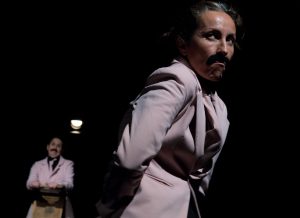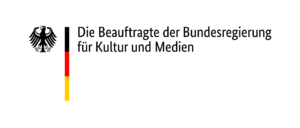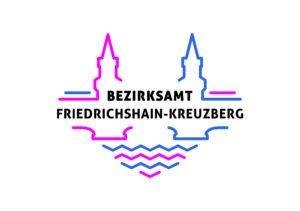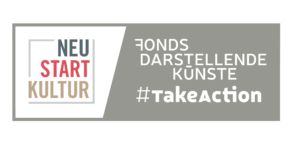Women in Europe are still fighting for what Rwanda achieved long ago: 62% of their members of parliament are female. In Germany, the figure is just 34%. This East African country declared gender parity the basis of its politics in 1994. Meanwhile in Germany, this kind of parity is still a long way off despite gender equality being enshrined in common law since 1949.
A Rwandan and a German performer discuss numbers and realities from both countries, using a drum as the central symbol of power. They take a peek behind the curtain: if women are empowered, how do men deal with losing their power and what are the lines of confrontation in the home? How slowly or quickly do quotas change a culture and the mindset of a nation?
With speeches, statistics, songs and protest choreography, Learning Feminism from Rwanda follows the trail of Rwandan fast-track feminism from shiny statistics and glass ceilings to hearth and home. Let’s see how much Europe can learn from Rwanda?
Due to the COVID-19 crisis, three performers from Kigali will be present on video and one German and one Rwandan performer will be live on stage.
You are currently viewing a placeholder content from Vimeo. To access the actual content, click the button below. Please note that doing so will share data with third-party providers.
Die Wiederaufnahme wird gefördert vom Fonds Darstellende Künste aus Mitteln der Beauftragten der Bundesregierung für Kultur und Medien im Rahmen von NEUSTART KULTUR. These additional performances are supported by Fonds Darstellende Künste with funds from the Federal Government Commissioner for Culture and the Media.

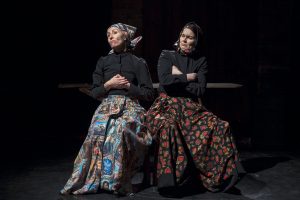 Everywhere they look things are not equal; in the taxi at the end of the night, on the bench in the middle of a village, in the congregation, in the boardroom, in the home. They tell stories of abortion, sing about violence and dance about menopause. They remember the lies they were told as children and question the hope that things might be different for future generations.
Everywhere they look things are not equal; in the taxi at the end of the night, on the bench in the middle of a village, in the congregation, in the boardroom, in the home. They tell stories of abortion, sing about violence and dance about menopause. They remember the lies they were told as children and question the hope that things might be different for future generations.